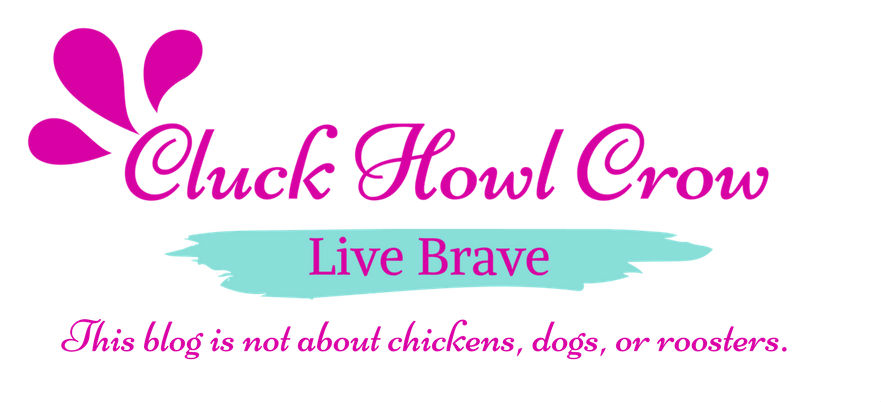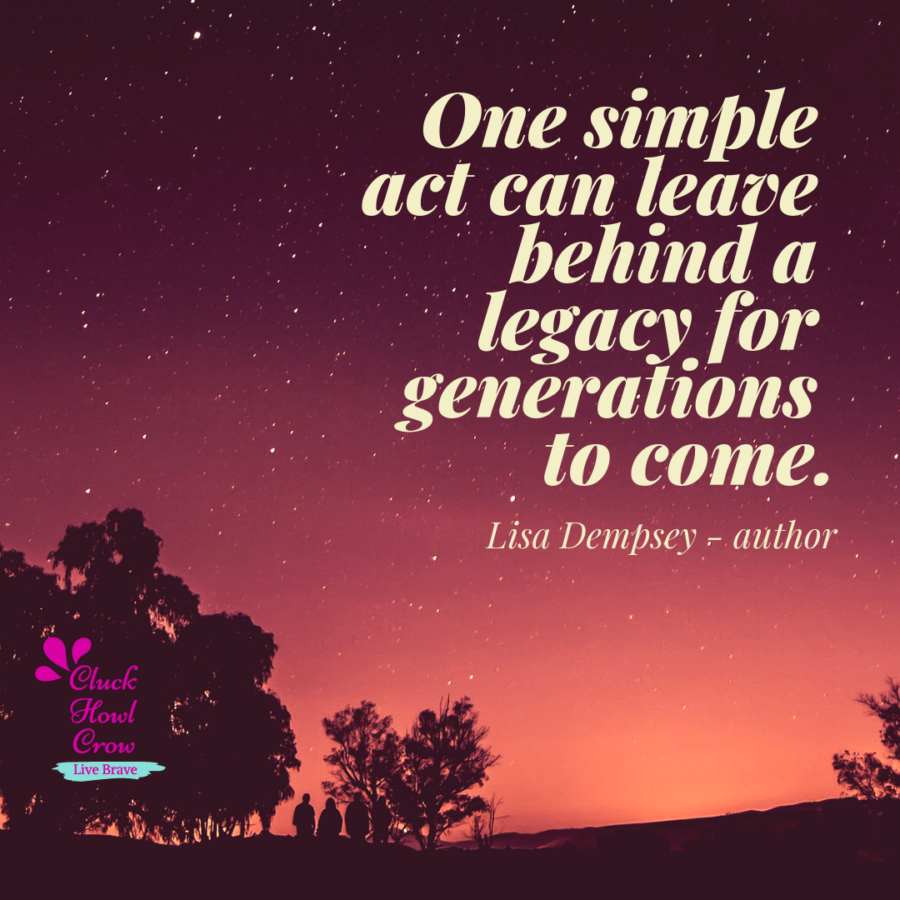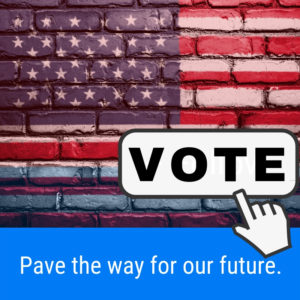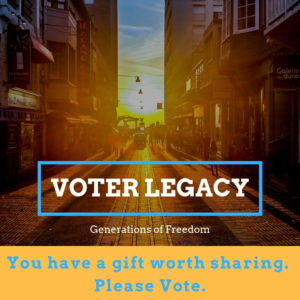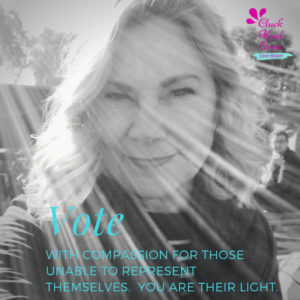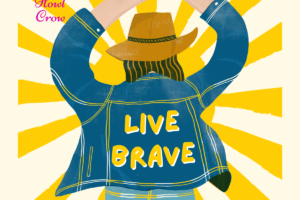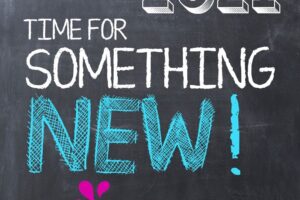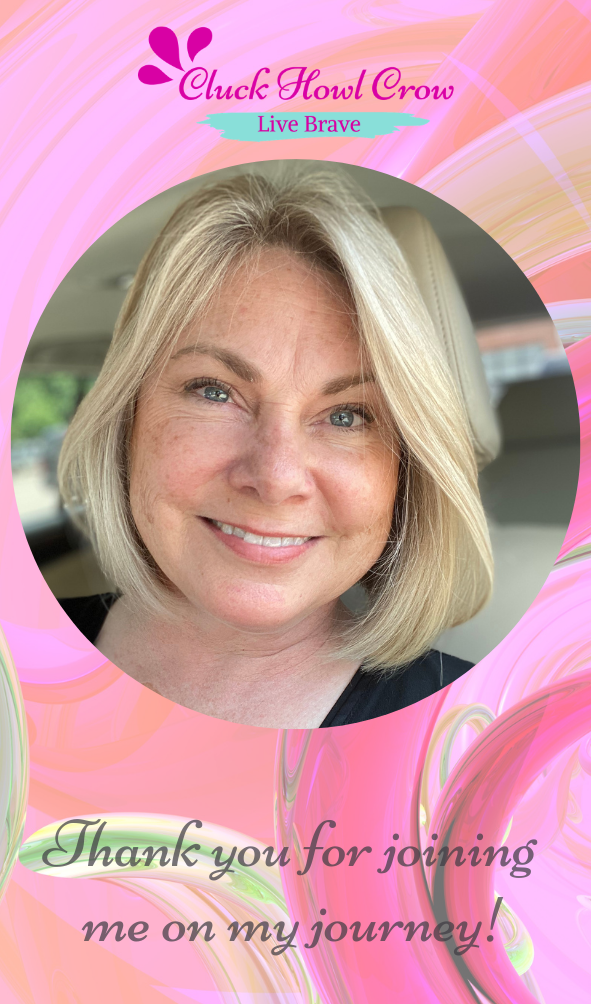Have you ever wondered about your legacy? Whether you dream of creating a new product, building an organization, or divining a new invention, there is one chief legacy that each of us will be responsible for, our personal legacy.
What is a personal legacy? It is the history of your habits, choices, values, and actions. This legacy is more than the collective memories that your friends and family will have of you. The legacy you create both while living and beyond your time here on earth will affect strangers and ancestors alike.
As a country, our Founding Fathers contrived a legacy that has been passed down through many generations. They were bold, imaginative leaders inspired by the pursuit of freedom and equality. Year after year, new leaders arise and continue to push through boundaries with the hope of toppling oppression and securing a legacy of new personal liberties and freedoms. One of the first civil liberties we received as a foundling Democracy was a system of voting.
Many people think of voting as something that came naturally when the Declaration of Independence was signed and a birthright of Americans. In fact, our voting rights have been evolving for over 240 years. It took 144 years after the Constitution was signed before women were allowed to vote and it took another forty years after that for the 1964 Civil Rights Act to ensure all men and women age 21 and older regardless of race, religion, or education earned the right to vote. In 1971, just over a generation ago, they lowered the voting age to 18 years old with the 26th Amendment to the U.S. Constitution.
We tend to think of these evolving rights as being granted to us by our Nations elected and appointed leaders. But the truth is they were given to us by the people who voted.
Your vote has power beyond what you can imagine today. You can give a voice to those individuals who are not being heard. This voting power is essential to me personally for many reasons, but the one that is most pressing to me is that your vote directly impacts the care, health, and well being of my daughter and my mother.
Lindsey, my daughter with a diagnosis of an Intellectual Developmental Disability, is not legally eligible to vote. There are so many other people in our country that have some limitation that will keep them from being able to vote now or in the future. Age, disability, incarceration, mental health issues, hospitalization, lack of transportation, natural disasters, and other confines may make it impossible for many people to vote in an election.
Please make voting a part of your legacy. Share the importance of this right with your children, family, friends, co-workers and even strangers. Vote for yourself and for those who are not able to or no longer have the ability to vote.
Voting is a very personal choice and during an election, many emotions are likely being felt. Take a moment and reflect on what it has taken to secure your right to vote and thank the freedom fighters that have come before us.
I will ask you for one other examination, I’ll beg you to consider with compassion the future care of your loved ones when you are choosing a leader for tomorrow. It’s easy to think of today’s concerns, but what about tomorrow’s?
I pray for a legacy that will allow me to escape the worry of how my children and parents will be cared for in the future when I am no longer able to be their caregiver, support, and advocate.
